How a 17-year-old dreaming of nothing more than a round of applause at assembly started ‘chucking down a load of crap’, and ended up finding his calling.
It’s 65 years back. I’m in my final year at Napier Boys’ High, and I’m about to earn my first money from writing.
Among the old boys of NBHS, about two decades ahead of me, was a young bloke called Russell Jones. I always think of him as young, because he was only in his 20s when he died, shot down over Germany in World War II.
His desolate parents offered money to establish a memorial essay competition at his old school. Since their son had been obsessed with flying, they specified it must always have an aviation motif. And in 1959, I entered.
Let’s wrench things into an imaginary present tense. Why do I decide to have a go? It’s not to honour or acknowledge Russell Jones or his parents. Sorry for that dismissal, but I’m just 17, and far too centred on my spotty self to consider anyone else.
Nor do I enter out of any commitment to literature/writing. My motives are much more focused. I want to win and have my name read out in assembly. I want applause. I want to be admired.
The topic for 1959 is The History of Aerial Top-Dressing in New Zealand. No disrespect to Jones or his family, but it’s hardly a subject to quicken the blood, especially when that blood festers with adolescent hormones.
But I go to the Napier Public Library, up two flights of mock-marble stairs above an accountant’s, and find some relevant books. It’s the late 1950s, remember; online research isn’t even a gleam over the horizon. I lug them home to our grotty little place on Hospital Hill, and start taking notes – places, cargos, types of biplane. I come across anecdotes of crises and crashes; somehow glimpse how they could lift the essay.
It’s an unexpectedly satisfying process; makes me feel purposeful. Well into the next century, it remains a jolt for me to stop the cosy, responsibility-lite procrastination of research and move onto the nakedness, the vulnerability of actual writing.
On a winter afternoon, half-a-dozen of us from the Upper Sixth troop into the NBHS school library. We’ve got two hours, unsupervised except by benign, bespectacled Mrs Potter the librarian, who smiles at us from her office. My friends sit down to talk, joke, exult over missing Maths.
But very soon, I start to write. I’ve already decided that the story I’d found of top-dressing pilot versus bellicose ewe who won’t yield right of way on the landing strip will make a good opening. After all, the Biggles books I furtively swallow often begin with something like this, though it’s usually a bull elephant rather than sheep causing the problem. So I begin with a technique stolen from my reading. Sixty-five years on, nothing’s changed.
I get the ovine confrontation story down, re-read it, chop out a few adjectives (and there’s the genesis of another writing habit). A couple of my friends have also begun; they look carefree about the whole business.
I’m not. I keep making sure to joke, to say ”Aw, I’m just chucking down a load of crap”. Whatever else I do in late 1950s provincial New Zealand, I mustn’t look like I’m turning into an arty-farty.
But something is happening. I’m moving into a quiet place. I grin when my mates say ”Look at Dave going for it,” but I’m edging away from them. Stillness is starting to wrap around me. It’s new. It’s rather wonderful. I’m alone, but I’m connecting, even if I don’t yet know with what or whom.
I’m watching as well. Watching my fountain pen on the lined school pad, where a sentence is lengthening to give a contrasting cadence with the two short ones before it. I go to write ”perilous”; realise it sounds clichéd and unattractively plosive with the ”procedures” that has to follow, so I change it to ”risky”.
Actually, do I change it? Is it me doing this? An awareness flicking between brain and hand is nudging me: ”Save this till the next paragraph … Write this the way you’d say it … Trim that description; it’s slowing things down.”
I’m simultaneously involved and detached. A few thousand pages further on in my life, I’ll learn to trust this, to accept it as one of the wonders of writing – though when I come back the next day, I’ll slash great chunks of flab from it.
But in the NPBHS library, a next day isn’t relevant. I have to finish this by the 3.20 bell. And I will; I’m in charge of what’s happening, in some suspended, arm’s-length way. I’m making, shaping.
Two careers and two kids later, I’ll read Maurice Gee’s words, and see that they encapsulate this awareness perfectly. ”You get up at the end of two hours, and you’ve made something that never existed before. It’s unique. It’s yours. That’s one of the greatest pleasures I know.”
I keep on. I’m thinking just one sentence ahead, but I’m aware of the section to come and the paragraphs behind. I finish 10 minutes before the bell, with the statistic and summation I identified way back in my reading for a good ending (‘‘sonorous, like the farting of a goose,” as Ezra Pound put it). The other guys are still writing. I read through what I’ve done, removing more adjectives. In writing workshops of the distant future, I’ll suggest to people that they read their work aloud when editing, literally or internally; try to get their own voice on paper. Though I hardly register it, I’m doing a little of that now.
Mrs Potter appears at the bell, collects our efforts. I straggle out with the rest, insisting that what I’ve written is total crap. But I know I’ve accomplished … something. I’m still feeling a bit remote. And fortunate; privileged even. That’s never changed. Five steps further on and too late, I realise what I should have done with one of the middle bits. Another thing that hasn’t altered.
Let’s return to a less pretentious past tense. I won. My name was read out in assembly. The school applauded David Hill. The school instantly forgot David Hill. In class, our English teacher said ”I’ve been trying all year to make Hill get off his backside, and show what he’s capable of. Now finally he’s done it.” Ah, my first ever review.
And – see the opening paragraph – I got paid. Two pounds, two shillings, a figure nearly all of you will be gazing at in puzzlement. It equalled two guineas, and how rich with literary associations that sum used to be. In 1965, when I had a poem published in The Listener, they paid me ten shillings and sixpence – half a guinea.
Like a Creative New Zealand grant nowadays, the Russell Jones riches came with conditions attached. You had to spend them on a book. In the Office Supply Company, Tennyson Street, I gazed wistfully at their row of Biggles, then settled for the only New Zealand author I’d heard of, someone called Mansfield.
A few months later, at the end-of-year prize giving, my name was read out again, and a Distinguished Guest handed over the gilt-edged, mock-leather-bound edition of KM’s short stories, with school crest stamped into the cover. My glory was complete.
I got home, I opened the book, and gazed at a fancy embossed slip of paper pasted inside. ‘‘The Russell Jones Memorial Essay Prize for 1959”, it trumpeted, ”is awarded to … DAVID HALL”.










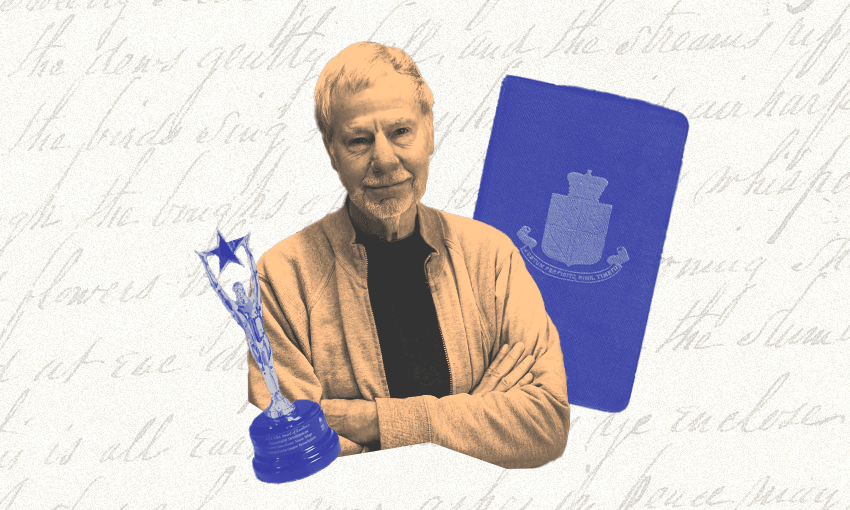
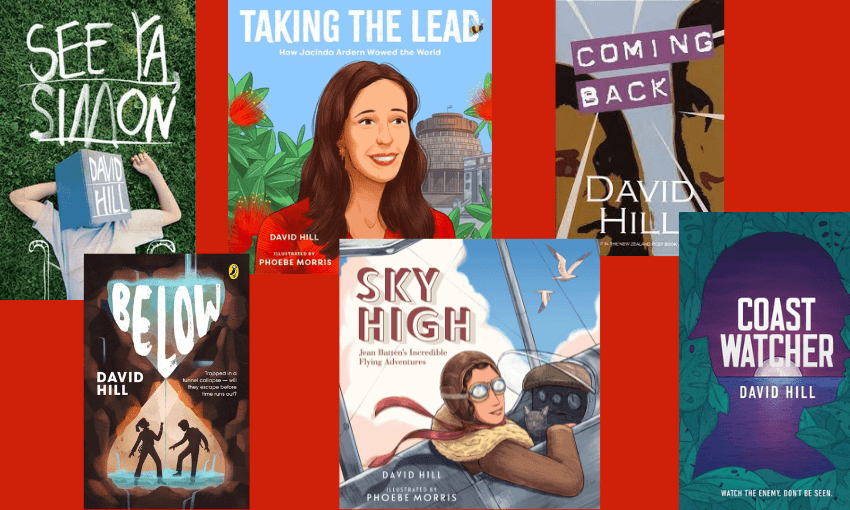
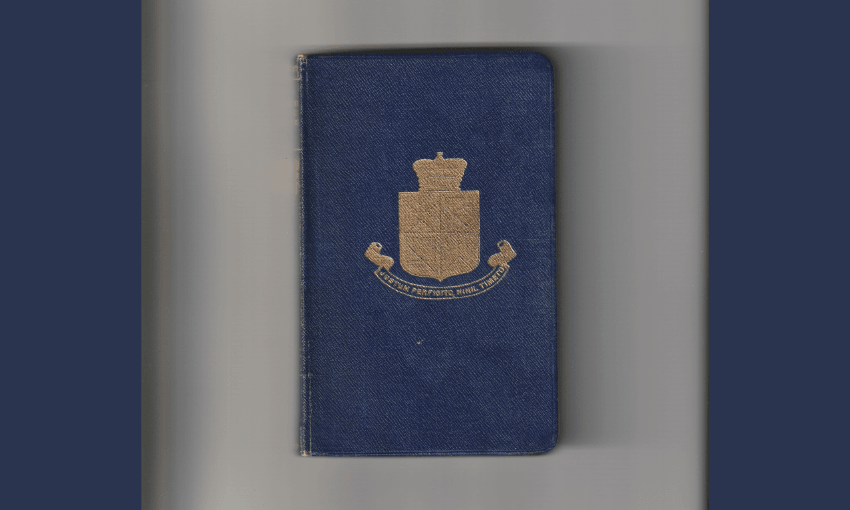

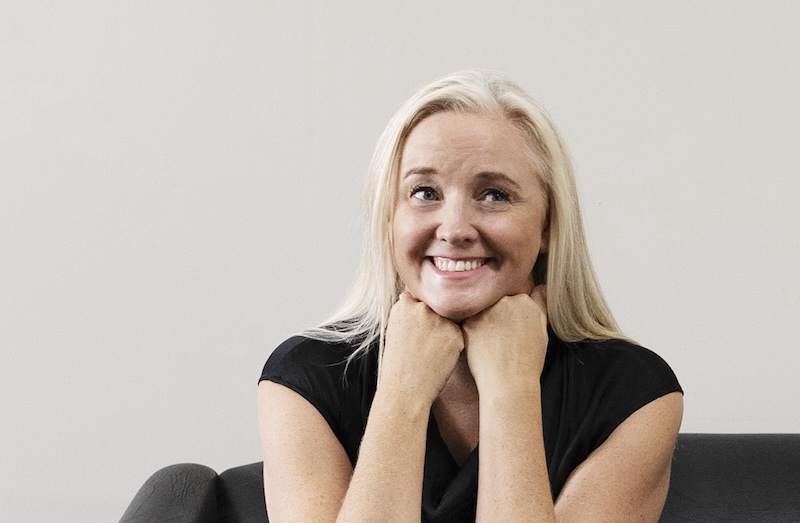





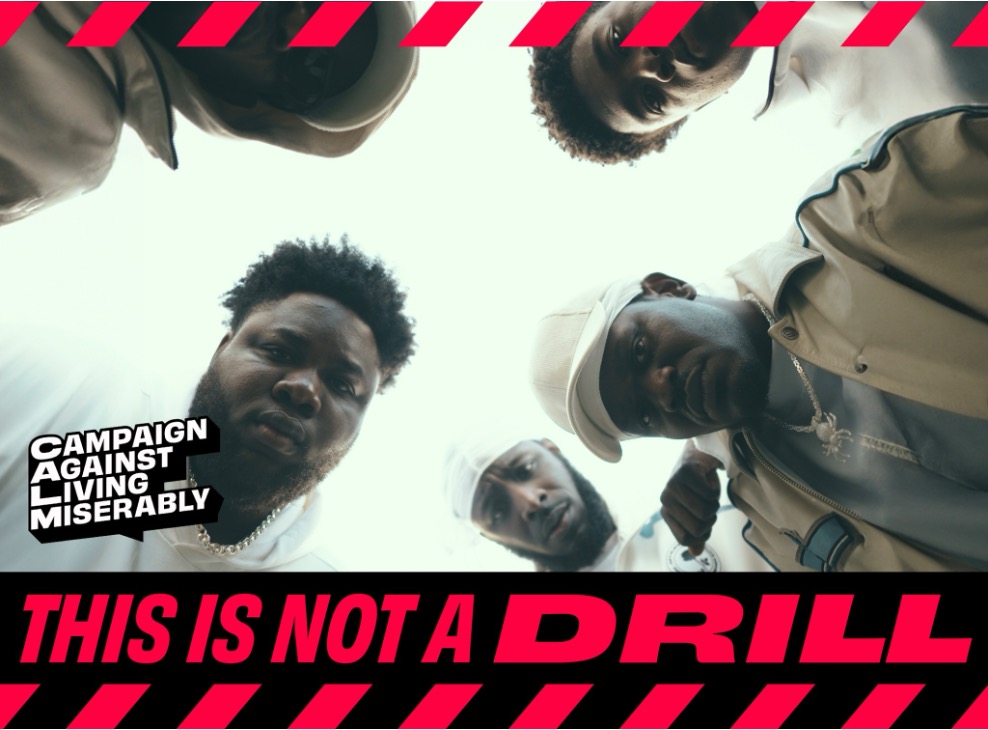
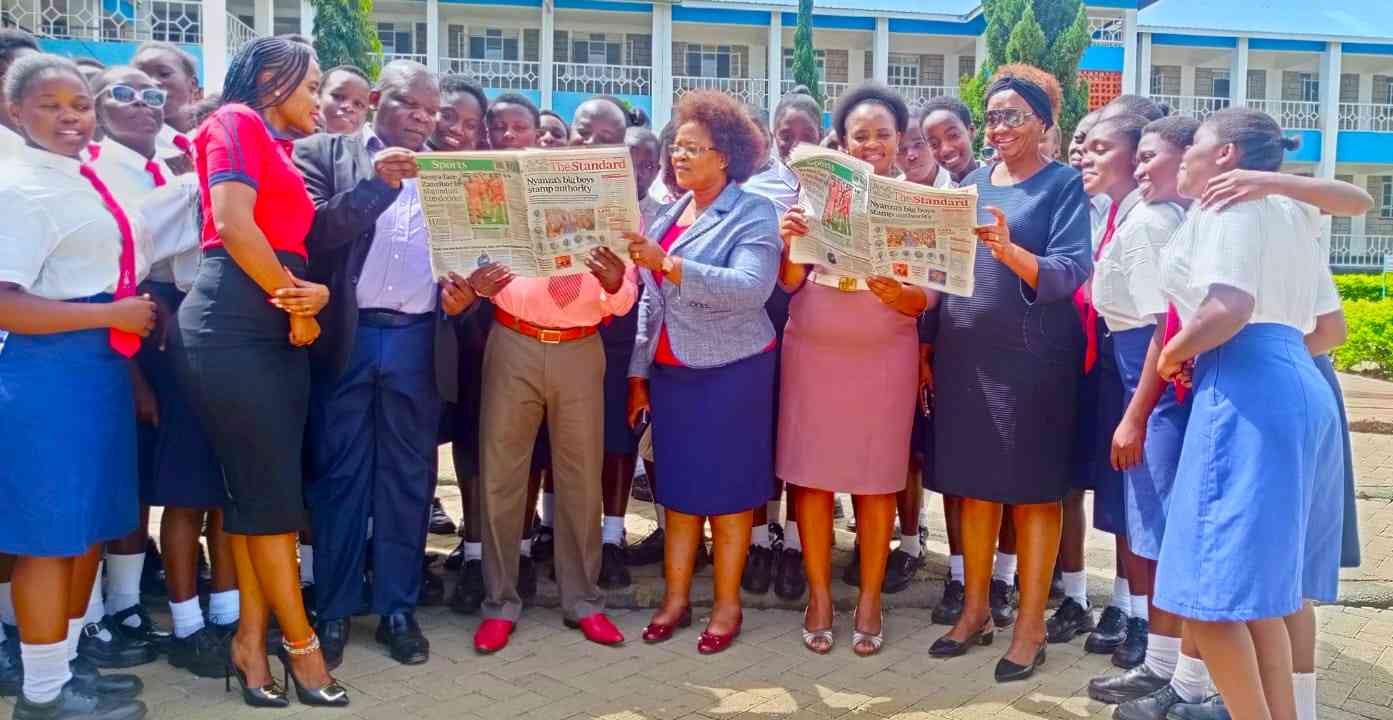

Discussion about this post